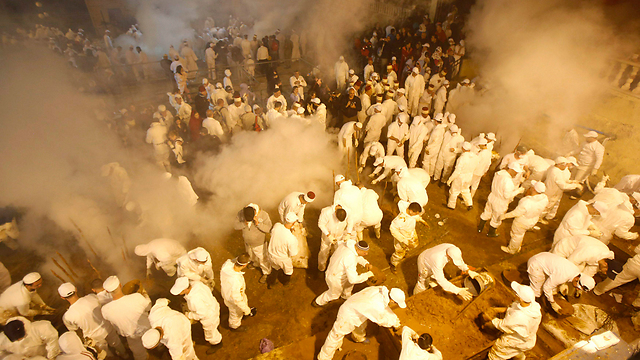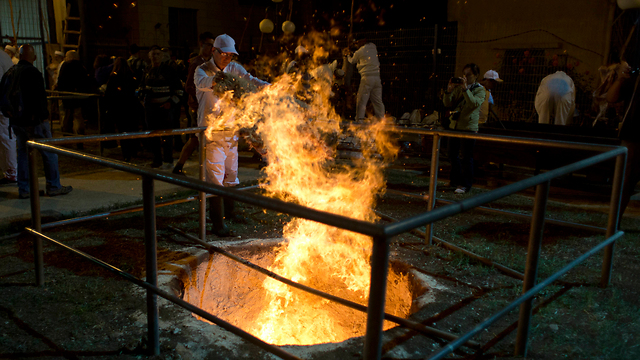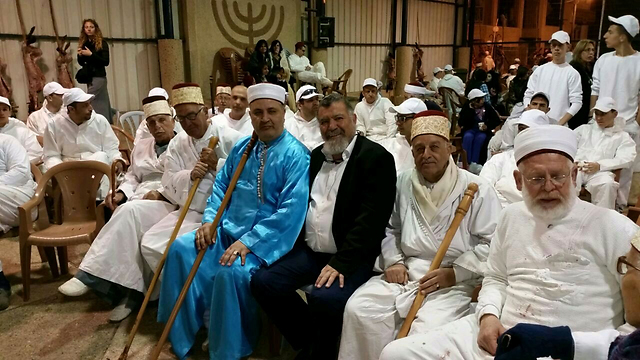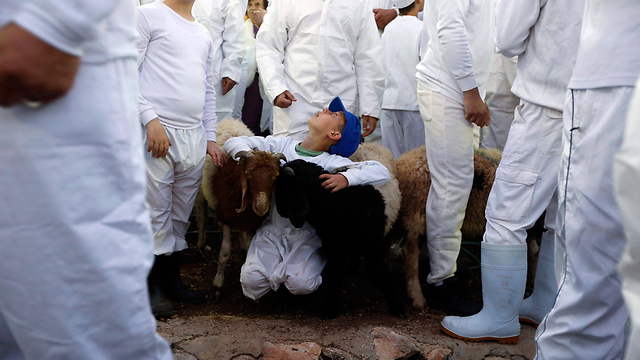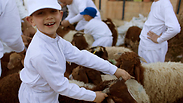
Samaritans hold annual Passover sacrifice ceremony on Mt. Gerizim
Abrahamic religious group holds 3,600-year-old annual ceremony, sacrificing 50 sheep - one for every family in the 800 member community.
Hundreds of members of the Samaritan community and many guests - both Israelis and Palestinians - gathered on Mount Gerizim near Nablus on Saturday night for their annual Passover sacrifice.
Those in attendance, dressed in traditional white capes and red head coverings, listened to the Samaritan High Priest reading the commandment given to the Israelites to offer the sacrifices, after which 50 sheep were sacrificed - one for each family. On Sunday, after the sacrifice ceremony, the Samaritans hold a Sabbatical day.
The ethnoreligious group got its name when its members were exiled to the Samaria area in the final days of the First Temple by the Assyrian king Sennacherib. According to Samaritan tradition, the sacrifice ceremony has been performed for the past 3,600 years.
The sheep who are slaughtered are skinned after being sacrificed, with portions forbidden for consumption. They are then burned on the altar fire. Later, the sheep are skewered and cooked in ovens in the ground. When the meat is roasted, each family gathers in their own home to perform the mitzvah of eating the Passover sacrifice.
The Samaritans comprise some 800 members. Half of them live on Mount Gerizim and the other half in Holon, on the outskirts of Tel Aviv.
The Samaritans follow Samaritanism, an Abrahamic religion with close links to Judaism. They adhere only to what is written in the Bible, and consider their worship the true religion of the ancient Israelites.
The head of the Samaria Regional Council, Gershon Mesika, attended the ceremony.
"We can to show our respect to the Samaritan group, which constitutes a part of the State of Israel," he said. "Over the years we've had full cooperation between the Samaritans and the regional council - on normal days, days of celebration and days of mourning."










